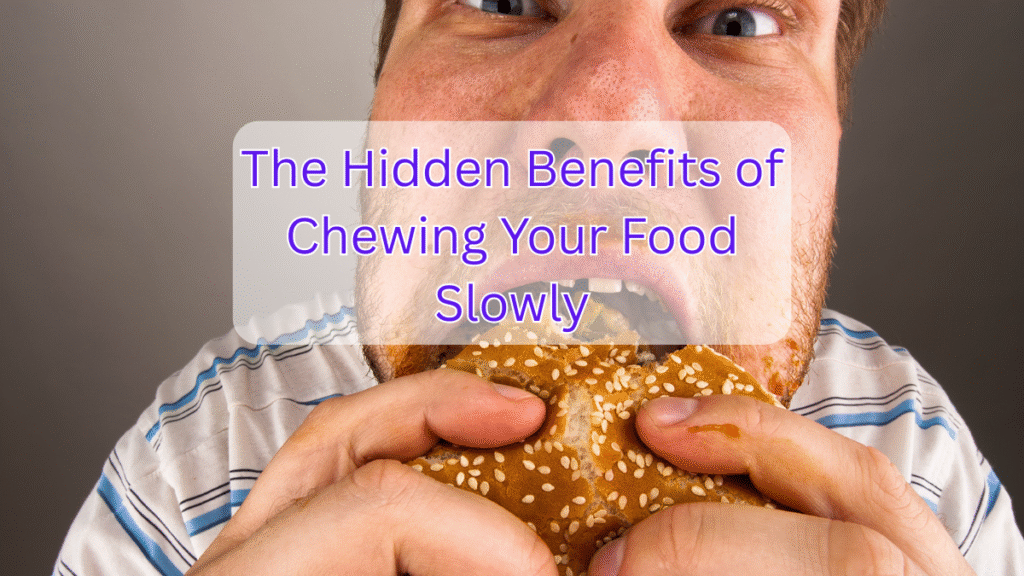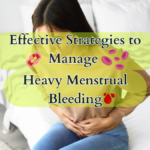Benefits of Chewing
In our fast-paced world, meals are often rushed—gulped down between meetings, eaten on the go, or mindlessly consumed while scrolling through our phones. But what if something as simple as chewing your food slowly could transform your health, digestion, and even your relationship with food?

It turns out, the age-old advice to “slow down and chew your food” isn’t just about manners—it’s backed by science. From better digestion to weight management, the benefits of mindful chewing are surprisingly profound. Let’s dive into why slowing down at mealtime is a game-changer—and how you can make it a habit.
Why Chewing Slowly Matters More Than You Think
Chewing is the first (and often most overlooked) step in digestion. When you take the time to thoroughly break down food, you’re not just making it easier to swallow—you’re kickstarting a cascade of benefits for your body.
1. Improved Digestion and Nutrient Absorption
Your stomach doesn’t have teeth—meaning digestion truly begins in your mouth. Saliva contains enzymes like amylase and lipase, which start breaking down carbohydrates and fats. The more you chew, the more these enzymes can work, easing the burden on your stomach and intestines.
Tip: Aim for 20-30 chews per bite, especially for dense foods like meats and raw veggies.
2. Better Weight Management
Ever notice how fast eaters tend to overeat? It takes about 20 minutes for your brain to register fullness. Eating slowly gives your body time to signal that you’re satisfied, reducing the likelihood of overeating.
Studies show that slow chewers consume fewer calories and feel fuller longer compared to fast eaters (source).
Tip: Put your fork down between bites to pace yourself.
3. Enhanced Taste and Satisfaction
Rushing through meals means missing out on the flavors and textures of your food. Chewing slowly allows you to savor each bite, making meals more enjoyable and satisfying. This can reduce cravings and emotional eating.
4. Reduced Bloating and Digestive Discomfort
Swallowing large, poorly chewed food can lead to gas, bloating, and indigestion. Thorough chewing breaks food into smaller particles, preventing undigested chunks from fermenting in your gut.
Tip: If you frequently experience bloating, try chewing each bite until it’s almost liquid.
5. Stronger Jaw and Better Oral Health
Chewing is a workout for your jaw muscles and stimulates saliva production, which helps neutralize harmful bacteria and prevent cavities.
How to Slow Down and Chew Mindfully
Knowing the benefits is one thing—but how do you actually make slow chewing a habit? Here are some practical tips:
1. Set a Timer
Start by extending your meals to at least 20 minutes. Use a timer if needed to remind yourself to slow down.
2. Engage Your Senses
Before eating, take a moment to appreciate the colors and smells of your food. This primes your brain for mindful eating.
3. Chew Until Your Food Loses Texture
Aim for a smooth consistency before swallowing. This ensures optimal digestion.
4. Put Down Your Phone (and Fork)
Distractions lead to mindless eating. Focus solely on your meal to enhance awareness.
5. Practice Gratitude
Taking a moment to express gratitude for your meal can naturally slow your pace and improve digestion.
Common Questions About Chewing Slowly
Video Credits
Does chewing more help with acid reflux?
Yes! Properly chewed food reduces stomach workload, which can minimize acid reflux symptoms.
Can slow chewing help with weight loss?
Absolutely. Studies link slower eating with reduced calorie intake and better satiety signals.
What if I’m always in a hurry?
Even small changes—like chewing each bite five extra times—can make a difference. Start small!
Final Thoughts: Small Change, Big Impact
Chewing slowly isn’t just about digestion—it’s a simple yet powerful habit that enhances overall well-being. From better nutrient absorption to mindful eating, the benefits are too good to ignore.
Your Challenge: At your next meal, put these tips into action. Notice how you feel—both during and after eating. Over time, this small shift can lead to lasting health improvements.
Did you find this helpful? Share your slow-chewing experiences in the comments below, and don’t forget to pass this along to someone who eats too fast!











